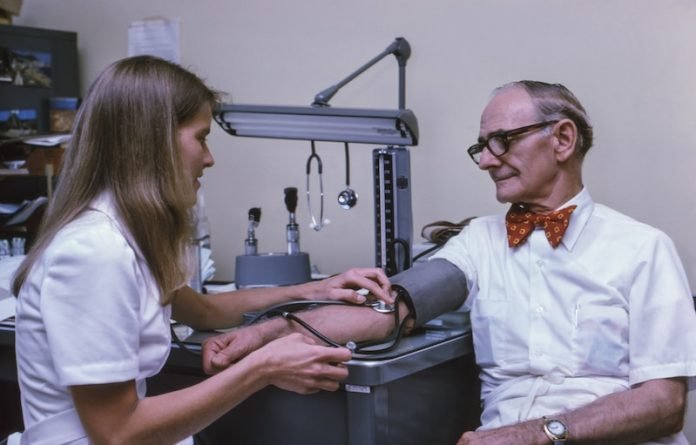
High blood pressure—or hypertension—is a chronic illness affecting more than a third of Australians over the age of 18.
If left untreated, hypertension can lead to serious health conditions, like stroke and heart disease.
In a study from UNSW Sydney, scientists found hydrochlorothiazide—one of the most prescribed high blood pressure drugs in Australia—has shown links to increased risks of developing skin cancer among older people.
The drug contains photosynthesising properties, which can make the skin more sensitive to the sun.
The findings are based on a big data analysis of skin cancer rates in a case-control study among older Australians. The results support similar findings from previous international studies.
Management of high blood pressure generally requires prescribed medicine, like hydrochlorothiazide, alongside lifestyle changes, like eating a healthier diet and getting regular exercise.
The data for this research was provided by the Department of Veterans’ Affairs (DVA).
It included de-identified information about cancer registrations, hospitalisations, and medicine dispensing for DVA healthcare cardholders (aged 65 and over) who lived in NSW between 2004 and 2015.
The researchers compared hydrochlorothiazide use in people who had been diagnosed with lip cancer (45 cases) or malignant melanoma (659 cases) compared with those with neither diagnosis (13,300 controls).
They found an increased risk for developing malignant melanoma and squamous cell cancer of the lip (lip cancer) with hydrochlorothiazide use.
For lip cancer, the risk also appears to be cumulative—that is, the longer that hydrochlorothiazide is used, the higher the risk of developing lip cancer.
The researchers don’t want anyone to suddenly stop taking hydrochlorothiazide out of fear of developing skin cancer.
They say the skin cancer risk is something for prescribers to be aware of.
Doctors may want to consider conducting more skin checks for their patients or reinforcing advice around sun-smart behaviors that everyone should be aware of, like adequate protection when UV is higher than three and avoiding sun exposure during peak UV times.
To reflect this newly understood risk, the product information—that is, information that helps health professionals in prescribing medicine—has been updated for medicines containing hydrochlorothiazide.
If you care about skin health, please read studies about top signs of diabetic skin disease, and 3 grams of omega-3s a day keep high blood pressure at bay.
For more information about health, please see recent studies about how a tougher skin could change the shape of stealth aircraft, and results showing how to combat the effects of aging on your skin.
The study was published in Basic & Clinical Pharmacology & Toxicology and conducted by Dr. Benjamin Daniels et al.
Copyright © 2022 Knowridge Science Report. All rights reserved.



